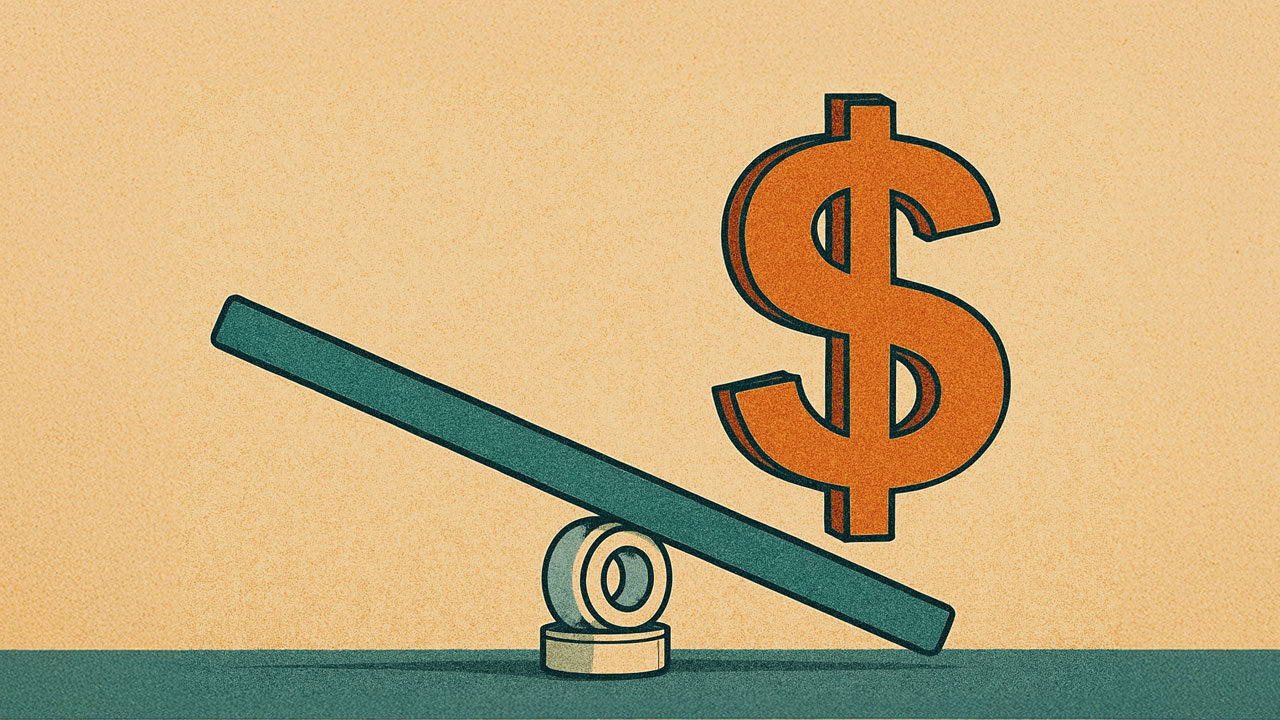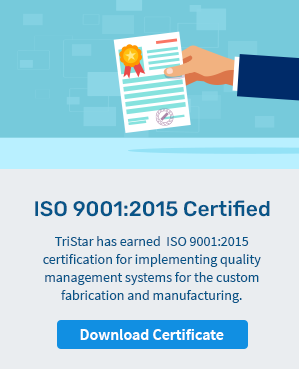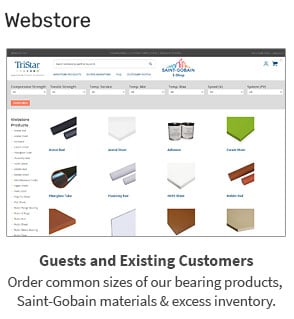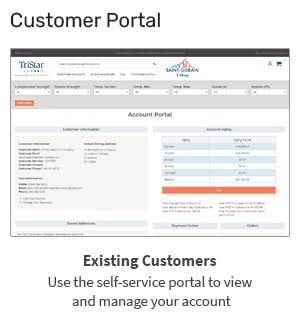2 min read
Small Components, Big ROI: How Bearings Can Drive Exceptional Value
![]() Adrian Carrera
December 10, 2025
Adrian Carrera
December 10, 2025

In complex mechanical systems, bearings are often treated as routine parts: small, commoditized, and easy to replace. But in many cases, they “bear” more economic weight than their size or price would suggest.
When a bearing drives downtime for replacement, inflates maintenance requirements , or results in unplanned failure due to inadequate specification, its effective cost can rise exponentially. And when an optimized component eliminates one or more of these issues, the savings can grow by many orders of magnitude compared to the original price.
In this blog, we consider some fundamental principles that commonly lead TriStar’s advanced polymer bearings (including self-lubricating options) to drive incredible value for our customers.
Extending Part Lifespan = Fewer Shutdowns + Replacements
When a bearing lasts longer, the savings go beyond the replacement price of the part itself. Extending service life means fewer planned shutdowns, fewer technician hours, and fewer disruptions to production schedules. In many cases, it also reduces the risk of unplanned failures that can damage equipment or compromise safety. The financial impact can be threefold: lower replacement costs, minimized downtime, and improved reliability across the system.
These benefits are even more critical in applications where parts are difficult to access or require major effort to service.
In one food processing application, a customer was replacing rubber seals every six months due to wear caused by aggressive washdowns. TriStar helped specify a more appropriate polymer that could better tolerate exposure to chemicals and abrasion.
With the new material in place, replacement intervals extended to more than two years. The maintenance team was freed up, service disruptions were reduced, and total cost of ownership dropped, all without any redesign or added complexity.
Minimizing the Cost of Downtime
In manufacturing environments where production never stops, minutes count, and even planned maintenance can be incredibly expensive. Lubricating or replacing metal bearings often requires halting the line, dispatching technicians, and coordinating support, all of which cost time and money.
In one facility, the cost of scheduled downtime for routine bearing maintenance added up to more than $300,000 per year. TriStar recommended a self-lubricating polymer bearing that could perform reliably without grease or oil. This change allowed the customer to completely eliminate this expensive recurring maintenance task from their schedule (and budget).
Performance in Extreme Conditions Extends Part Life
Many bearings must perform in harsh environments with engineering challenges that include extreme temperatures, aggressive chemicals, and heavy loads. These are not edge cases, but common application parameters across sectors like pulp & paper, oil & gas, and marine equipment.
TriStar helps customers match materials to the environment, recommending filled polymers, self-lubricating materials, or surface treatments that slow wear and degradation.
One aluminum processor faced frequent equipment repairs due to bearing failures. By switching to Ultraflon high-temperature bearings, they extended maintenance intervals, reducing repair costs by threefold.
Preventing Cascading or Systematic Failures
When a bearing wears out early, the damage rarely stops there. Misalignment, friction, and excessive load transfer can cause secondary issues like damaged shafts, worn housings, degraded seals, or equipment vibration that affects the broader system. The right bearing can mitigate all of these issue to drive far-reaching benefits for the system where it is employed.
TriStar works with customers to evaluate failure points, material fatigue risks, and system-wide performance demands. Stopping the first failure often means preventing several others down the line. By choosing a more appropriate polymer or modifying the bearing geometry, we help customers eliminate small problems before they become expensive ones.
Big Strategic Value Can Stem from the Smallest Parts
Bearings may not dominate your project budget, but they have a direct impact on your most important operational outcomes. When they fail, the costs are immediate. When they last longer and require less attention, the savings add up, quarter after quarter.
TriStar’s engineering team works with customers to look past part numbers and think strategically. For a deeper look at our process, explore our Guide to Engineering Services for High-Performance Bearings.








